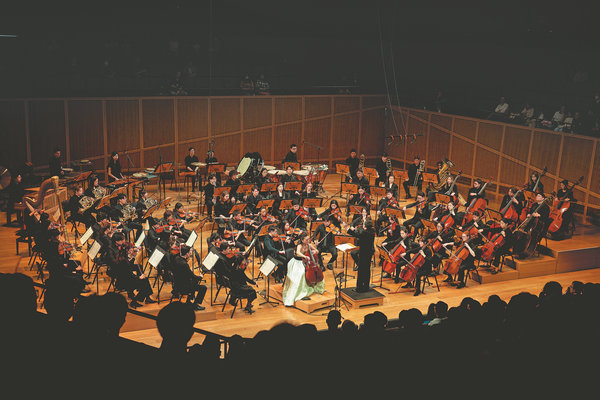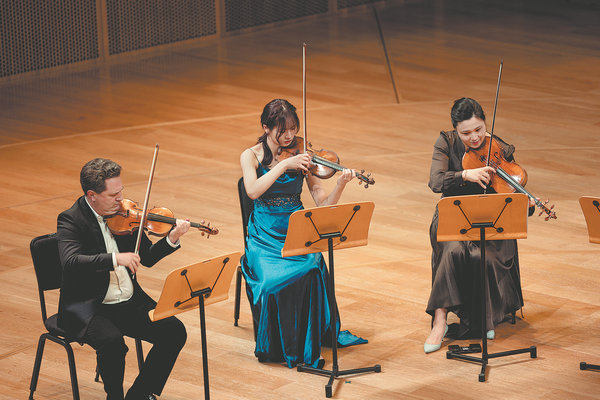
The Tianjin Juilliard Orchestra is embarking on its first ever China tour, presenting concerts at the National Centre for the Performing Arts in Beijing on Wednesday as part of the NCPA's Spring and Autumn Achievements showcase of performing arts from art institutions, and at the Hong Kong City Hall as part of the Hong Kong Generation Next Arts music festival on Nov 24. On Tuesday, it will present a pre-tour concert at the Tianjin Juilliard concert hall.
The Tianjin Juilliard Orchestra was established in September 2020, and soon after, plans for a tour began. The 2024-25 season marks the school's fifth anniversary. It is the first overseas campus of the New York-headquartered Juilliard School. The tour is part of the celebrations.

"We have been planning the tour for quite a while. We are eager to have our students go out and demonstrate their artistic talent, while presenting a successful teaching model to our peers. To me, the Tianjin Juilliard Orchestra is the best representation of our school's educational philosophy of 'focusing on collaborative musicianship'," says He Wei, the CEO and artistic director of the school.
The orchestra is made up of students from two graduating classes, meaning that every September, it experiences a major turnover, with around 50 percent of its members changing each year. As He says, it's an orchestra that never gets old. This tour is the orchestra's third concert of the 2024-25 season.

It has prepared a program that is musically rich and deep. It opens with Gift by Zhou Tian, a demonstration of the orchestra's commitment to performing the works of contemporary Chinese composers. Viola professor Hanna Lee and cellist He Sihao will then join Max Bruch's Romance in F Major, Op 85, and Tchaikovsky's Variations on a Rococo Theme, Op 33, the Russian composer's first composition for cello and orchestra, as an illustration of the high artistic level of the school's resident faculty.
The second half will include Paul Dukas' L'apprenti sorcier (The Sorcerer's Apprentice), Adagio from Armenian composer Aram Khachaturian's Spartacus, which is known for its lively rhythm and energy, and Russian composer Nikolay Rimsky-Korsakov's Capriccio Espagnol, Op 34. These three classic pieces, with their varying styles and solo segments, provide a great challenge for the students, while also giving them the opportunity to demonstrate their talent.